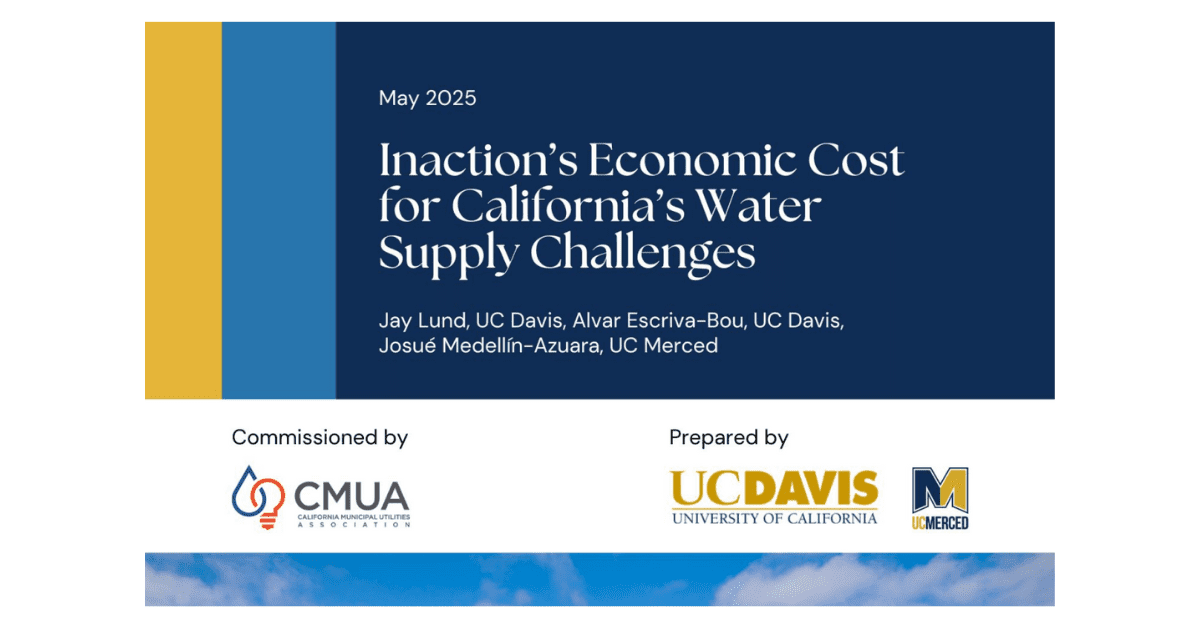Research Reinforces Urgent Need for SB 72 to Protect California’s Water Future
Back to News
A new economic analysis by Jay Lund (UC Davis), Josué Medellín-Azuara (UC Merced), and Alvar Escriva-Bou (UC Davis) shows the high cost of inaction on California’s perpetual water supply challenges, estimating that the state could lose enough water annually to supply up to 9 million households—with economic losses totaling between $3.4 and $14.5 billion per year, depending on the severity of the scenario.
The study, Inaction’s Economic Cost for California’s Water Supply Challenges, builds on prior research showing that California’s total water supply is on track to shrink by 12–25% by 2050, a loss of up to 9 million acre-feet per year, equivalent to one or two Lake Shastas. The new report emphasizes that without coordinated state action, these reductions could result in the fallowing of up to 3 million acres of farmland, the loss of 67,000 jobs, and lasting damage to California’s agricultural and rural communities. The research underscores the urgency of Senate Bill 72, authored by Senator Anna Caballero, which would create the first-ever statewide water supply target and direct California to develop 9 million acre-feet of new water supply by 2040. The bill aims to bring federal, state, regional, and local partners together to better plan, invest, and build toward a more secure, reliable, and sustainable water future.
The study identifies four primary factors contributing to California’s anticipated water supply decline:
- Groundwater Management: Implementation of the Sustainable Groundwater Management Act (SGMA) limiting groundwater extraction.
- Climate Change: Diminished snowpack reducing natural water storage.
- Environmental Needs: Increased water requirements to support ecosystems and combat sea-level rise.
- Colorado River Reductions: Decreased allocations affecting Southern California.
“We’ve done the math—and the costs of inaction are high economically and environmentally,” said Dr. Jay Lund, Professor of Civil and Environmental Engineering at UC Davis. “California urgently needs a long-term, statewide strategy to prepare for growing water challenges ahead.”
While conservation efforts remain vital, the research indicates they alone are insufficient to address the projected water deficit. New investments in stormwater capture, water recycling, desalination, and storage and conveyance infrastructure are also essential.
“California’s water system was designed for a climate that no longer exists,” said Senator Caballero. “SB 72 provides a roadmap to adapt our water strategies and tactics
CSAC is the sponsor of SB 72 which is currently moving through the Senate committee process. For more information, please contact Catherine Freeman, Senior Legislative Advocate at cfreeman@counties.org.